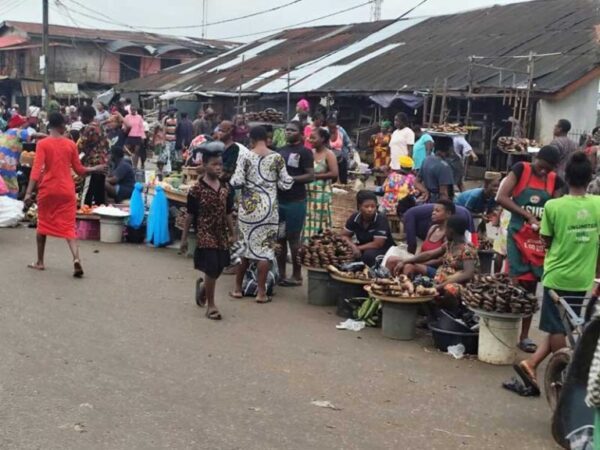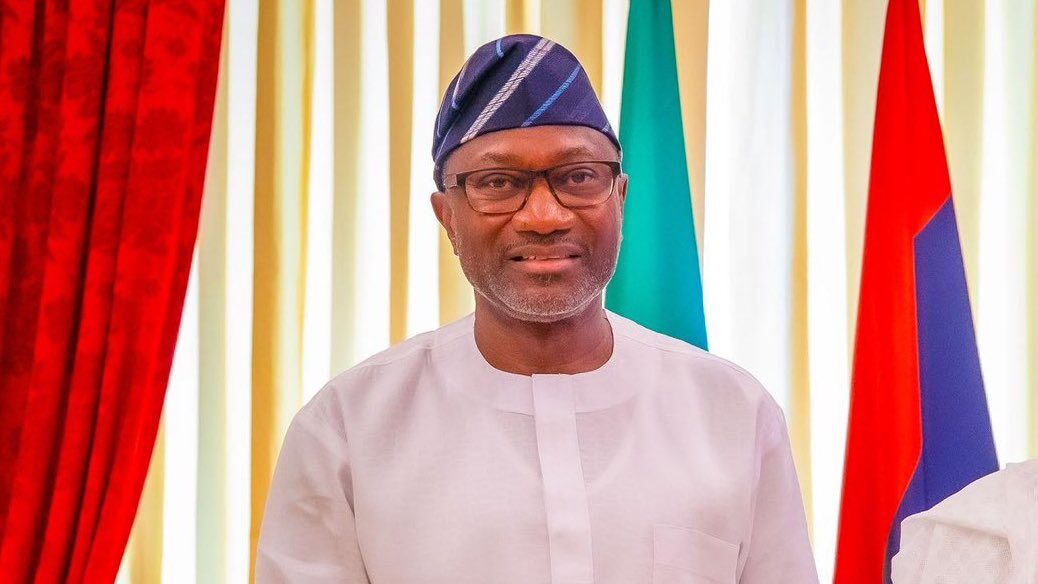
Uba Sani raises salaries of Kaduna’s tertiary education workforce, writes YUSUF ABASS
Recently, it was in the news that Kaduna State Governor, Uba Sani, has committed to implementing 70 percent of the Consolidated Polytechnics and Colleges of Education Academic Staff Salary Structure (CONPCAS) and Consolidated Tertiary Institutions Salary Structure (CONTEDISS).
At a time when the effects of brain drain are clearly seen, our academics deserve more attention. It is commendable that Sani is aligning to increase the academics’ emoluments. Hence, the recent applause for Sani by the Head of Service of Kaduna State, Mrs Jummai Bako, is right on target. It symbolises the governor as a leader who not only talks of commitments but acts on them. It fits into a broader pattern of purposeful change across the state under his watch. “His action has once again demonstrated that he is a leader who is ever willing to engage constructively, to deliver lasting solutions to matters of staff welfare,” Mrs. Bako said. “This bold and compassionate decision reflects the Governor’s integrity, empathy, and unwavering dedication to good governance, social justice, and sustained harmony between government and the workforce.”
Earlier in October 2025, the administration held a meeting with the Joint Union of Tertiary Institutions (JUTIKS) which was facilitated by the Nigeria Labour Congress (NLC), Kaduna State Council. In attendance were representatives from Nuhu Bamalli Polytechnic, the College of Education Gidan Waya, and the Kaduna State College of Nursing and Midwifery. At that meeting, Sani also approved 65 years as retirement age for academic staff and 40 years of service for non-teaching staff in Kaduna State-owned tertiary institutions. The implementation took effect immediately.
The governor’s decision to implement the new salary scale for academic staff under the state’s tertiary institutions framework aligns neatly with this broader commitment to education and welfare. When staff morale is lifted and compensation is adjusted in recognition of their work, the ripple effects can be profound and especially for teachers, as it translates to overall success in the educational sector. The Head of Service noted that staff members had already begun to receive alerts of salary adjustments—a clear sign of delivery rather than delay.
From his first day as governor on May 29, 2023, Sani has emphasised that good governance is defined by improvements in people’s lives rather than empty rhetoric. He has directed his energies toward sectors of society which too often linger at the margins: educators, small-holder farmers, students, and underserved rural communities. For instance, his administration cut the tuition fees in all state-owned tertiary institutions by 50 percent. That act was designed to expand access to higher education and remove a significant barrier for many families. At the same time, hundreds of classrooms and new secondary schools have been constructed or renovated, teacher furniture supplied, and thousands of pupils’ desks provided across local government areas in Kaduna.
Also, in Kaduna, a significant step forward has been taken in formalising the apprenticeship programme of the renowned Panteka Market through the partnership with the National Board for Technical Education (NBTE). The move aligns thousands of artisans within the market, with recognised training and certification frameworks, including the Nigerian Skills Qualifications Framework (NSQF). With NBTE granting full-training-centre status to Panteka and integrating it into formal accreditation processes, the governor’s administration signals a clear commitment to elevating vocational work from the margins into mainstream economic empowerment.
However, Sani’s focus on vocational training goes beyond Panteka. His administration has established three new Vocational and Technology Skills Acquisition Centres in Soba, Rigachikun and Samarun Kataf, each designed to offer training in trades such as welding, aluminium fabrication, solar installation and fashion design, with the aim of graduating thousands of youths annually. These institutions are intentionally located across the state’s three senatorial districts to ensure inclusive access.
By transforming the artisanal vibrancy of Panteka Market into a formal training ecosystem, the governor is recognising the value of traditional skills while modernising their context for today’s economy. Artisans at Panteka now have access to infrastructure upgrades, certification pathways and linkages to viable employment or entrepreneurship, a situation which bridges the gap between informal learning and formal recognition. By formalising the apprenticeship trainees of Panteka Market with NBTE and investing in vocational institutions, Sani is positioning Kaduna as a pioneer in vocational training and human-capital development.
Governor Sani’s administration has also shown that its vision for Kaduna State is not piecemeal but interconnected: education links into health, agriculture, infrastructure, security and economic inclusion. On the agricultural front, his government launched what has been described as the largest free fertiliser distribution programme in the state’s history—500 trucks of fertiliser, 240,000 bags provided freely to 120,000 small-holder farmers. Each of these efforts underscores a determination to put the citizen at the centre of governance. His efforts in financial inclusion, where more than 2.5 million bank accounts were opened for underserved citizens and nearly seven million registered for national IDs, are related example.
In a context where many Nigerians feel left behind, Sani’s approach offers a refreshing blend of compassion and execution. He has shown that asking for votes is one thing, delivering is another. His administration appears intent on delivering. Whether it is by reducing fees for more young people to study, or by distributing free farming inputs so that agriculture again becomes a viable livelihood, the message is consistent. Governance must touch everyday life.
Beyond the immediate welfare of citizens, infrastructure has also received significant attention. Over 700 km of roads have been either awarded or launched under his leadership, linking rural and urban communities, reducing travel times and enabling markets to function more seamlessly. In healthcare, primary health centres have been upgraded in large numbers, hospitals remodelled, equipment distributed and services extended deeper into rural areas.
The salary adjustments for tertiary staff therefore sit appropriately within this larger narrative of an administration that is attempting to break with inertia. By recognising academic staff and acting on it, the government is reinforcing the message that excellent public service deserves decent reward. And in doing so, the governor sends the signal that public institutions must be living, functioning entities. And not just hollow shells.
Perhaps most importantly for residents of Kaduna State, these actions carry an imprimatur of inclusion. Governor Sani has insisted on equitable development across the state’s senatorial districts, and his reforms appear structured to resist favouritism. The investment in education, the broad fertiliser distribution, the infrastructural roll-out and salary reforms reach into communities across all 23 local government areas. This mind-set: no parts left behind.
Of course, governance is never finished. The tasks ahead remain considerable: sustaining investment, ensuring the funds are spent wisely, maintaining security and tackling the structural challenges that still persist in the economy. But the positives are evident.
In summary, the applause for Uba Sani’s salary-adjustment decision for tertiary institution staff is much more than an isolated gesture. It reflects a pattern of active service, thoughtful reform and inclusive leadership.
Abass writes from Kaduna




